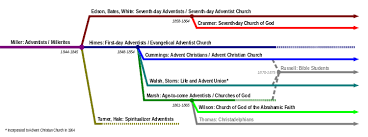Am I remembering correcting, that Watchtower teaching is that Michael took the persona of Jesus for the purpose of earthly life, and offering his sacrifice, and then resumed being Michael having returned to heaven? Or am I mistaken about that?
As I am in a different time zone, I don’t get to answer question right away, but thank you at least for asking….
Belief that Jesus is Michael in another role is just that…..it is a belief based on the scriptures that indicate that Jesus is assigned names in the various roles that he has played, as a dutiful son and servant of his Father. It is not a
doctrine however because the Bible does not directly state this. Unlike Christendom, we do not have doctrines based on assumptions and the twisting of Scripture.
Here is our reasoning….
“The book of Jude tells us:
“But when Michael the archangel had a difference with the Devil and was disputing about Moses’ body, he did not dare to bring a judgment against him in abusive terms, but said: ‘May Jehovah rebuke you.’” (
Jude 9) This incident helps to show the closeness of Michael to God’s ancient people. Therefore, it supports the argument that he was the angel that went ahead of the Israelites to protect them.
We learn from Jude that Michael had the post of archangel. In fact, he was the archangel, since no other archangel is mentioned in the Bible, nor does the Bible use “archangel” in the plural. “Archangel” means “Chief of the angels.” (Thayer’s Greek-English Lexicon of the New Testament) Among God’s spirit servants, only two names are associated with authority over angels: Michael and Jesus Christ. (
Matthew 16:27; 25:31; 2 Thessalonians 1:7) This, too, argues that Jesus and Michael are the same.
Interestingly, the name of Jesus is linked with the word “archangel” in one of Paul’s letters. The apostle writes:
“The Lord [Jesus] himself will descend from heaven with a commanding call, with an archangel’s voice and with God’s trumpet.” (
1 Thessalonians 4:16) The context places this event during “the presence of the Lord,” when Jesus has started to rule as king.—
1 Thessalonians 4:15; Matthew 24:3; Revelation 11:15-18.
It is Jehovah’s will and arrangement for Jesus to resurrect the dead. (
John 6:38-40) It is God’s trumpet that sounds the call for the dead to come back to life, just as God instructed that trumpets be used for an assembly of his people in ancient times. (
Numbers 10:1-10) Jesus issues “a commanding call” to the dead to come forth, just as he did on occasion while on earth. (
John 11:43) But now he calls, not with a man’s voice as he did then, but with all the power of “an archangel’s voice” (en pho·neʹ arkh·ag·geʹlou). However, only an archangel can call with an archangel’s voice! And no one but Jesushas been given the authority to resurrect the dead. Hence, this rousing prophecy gives additional strong reason for identifying Jesus with the archangel, Michael.
The apostle Paul wrote to the Hebrews:
“He [Jesus] has become better than the angels, to the extent that he has inherited a name more excellent than theirs.” (
Hebrews 1:4; Philippians 2:9, 10) However, this describes his situation after his having been here on earth. He was still the archangel and “the beginning of the creation by God.” (
Revelation 3:14) But he became better than the angels, the ‘more excellent name’ or position is something he did not possess before coming to earth.”
So scriptural evidence supports the fact that the man Jesus could very well have been Michael in human form. Jesus was not called Jesus until he was a man. It is the man Jesus who was our savior and laid down that human life, so we would continue to call our savior by the name he bore whilst on earth.
Upon his return to heaven he was given a “new name” as Phil 2:9 states…a name that is “above every name” which would be pointless if he was God because he already has a name that is higher that all others. (Psalm 83:18)
Jesus also mentions his new name in Rev 3:12…..so we have scriptural backing for this assumption.
The only impediment to it being true in the eyes of many, is the indoctrination of the godhead, but Christendom promotes that assumption as doctrine, when it is never directly stated in a single scripture.
Christendom makes doctrines out of assumed beliefs, not biblical declarations. We are careful not to do that.




